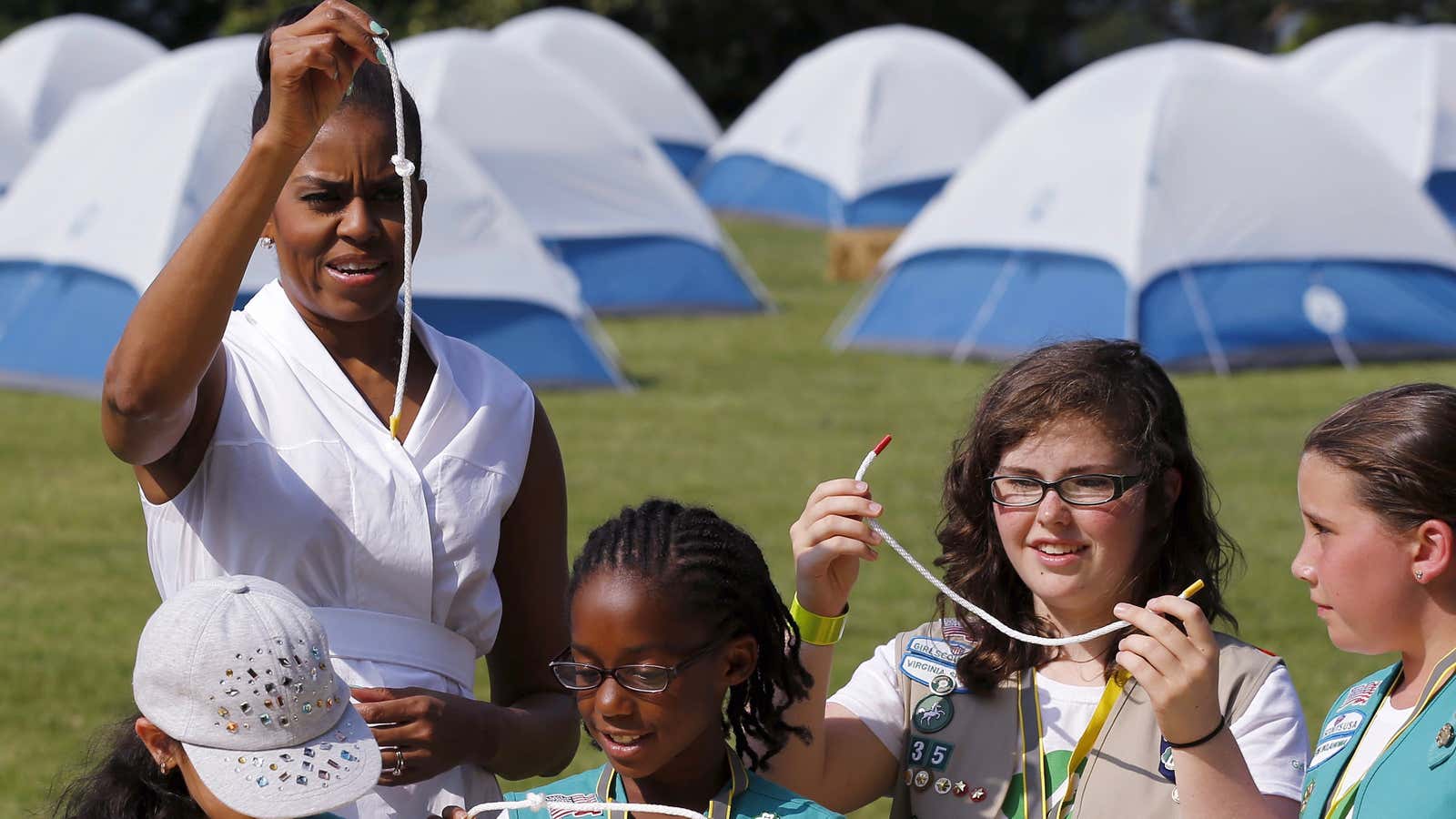The Girl Scouts of the United States of America (GSUSA) are not happy with the Boy Scouts of America (BSA) and their recent recruiting efforts.
The two distinct, unaffiliated organizations have always coexisted, distinguishing themselves by the genders they serve: girls and boys. But now the boys are using the term “scouts” in promotional efforts, simply eliminating the gender designation, and allowing girls to join their organization.
In a Nov. 6 lawsuit, the Girl Scouts argue that this effort by the Boy Scouts dilutes and infringes upon their trademark, confuses consumers, and hurts their group. What’s most notable about their claim is that Girl Scouts believes the Boy Scouts are being anything but honorable in promoting this new brand of inclusivity—in fact, that the organization is undermining the girls’ association.
In essence, the complaint argues that the Boy Scouts’ rebranding is making the Girl Scouts and the services they offer less relevant. In other words, inclusivity on the part of the Boy Scouts in this case harms the girls’ organization while advantaging the boys’ group, both economically and philosophically. Basically, the boys benefit from a new approach, while the girls stand to lose.
From the Boy Scouts’ perspective, that’s just the way the cookie crumbles. Allowing girls in their group means more potential scouts and means more potential earnings and popularity. For the Girl Scouts, however, this new development only means fewer potential girl scouts, less income, and more girls who will not be exposed to the targeted programming developed to foster strong female leaders.
Not only that, but the Boy Scouts are being pretty brazen in their efforts to suggest the group represents all scouts and that it’s somehow affiliated with GSUSA, the girls’ group claims. “Defendant’s efforts to leverage the Girl Scouts brand and confuse consumers has even gone so far as to prominently display a quote from GSUSA’s founder on BSA’s advertising for Scouts programs that has been disseminated to Defendant’s councils through the BSA Brand Center,” according to the complaint.
The filing shows, for example, a BSA promotion featuring a boy in his scout’s uniform and a quote from Juliette Gorden Low, who founded GSUSA, stating, “Scouting rises within you and inspires you to put forth your best.” And the Girl Scouts argue that some Boy Scout branches have even been discouraging businesses from allowing Girl Scouts to display materials or set up booths on their premises, claiming the two groups are the same and don’t need separate representation.
Essentially, the Girl Scouts say the Boy Scouts are sabotaging them. That’s especially interesting because the argument echoes a phenomenon seen in the greater society. It’s a bit like when men start claiming the title of feminist and explaining to everyone, male and female alike, what problems women face and why everyone needs to listen and pay more attention to females. Meanwhile, these men keep taking up the space.
While inclusivity on the part of the Boy Scouts is great in theory, creating deliberate confusion and appropriating the Girl Scouts brand to benefit a group that traditionally has served only boys is, frankly, scandalous. Girl Scouts may be famous for their sweet cookies, but based on the materials and evidence laid out in the complaint, GSUSA is right to feel sour about the Boy Scouts’ deliberately deceptive recruitment efforts.
Every Boy Scout pledges to follow the Scout Law, which provides, “A Scout is trustworthy, loyal, helpful, friendly, courteous, kind, obedient, cheerful, thrifty, brave, clean, and reverent.” And boy scouts take an oath, proclaiming, “On my honor I will do my best to do my duty to God and my country and to obey the Scout Law; to help other people at all times; to keep myself physically strong, mentally awake, and morally straight.”
But if the Girl Scouts’ complaint is to be believed, Scout’s honor has become a thing of the past.
